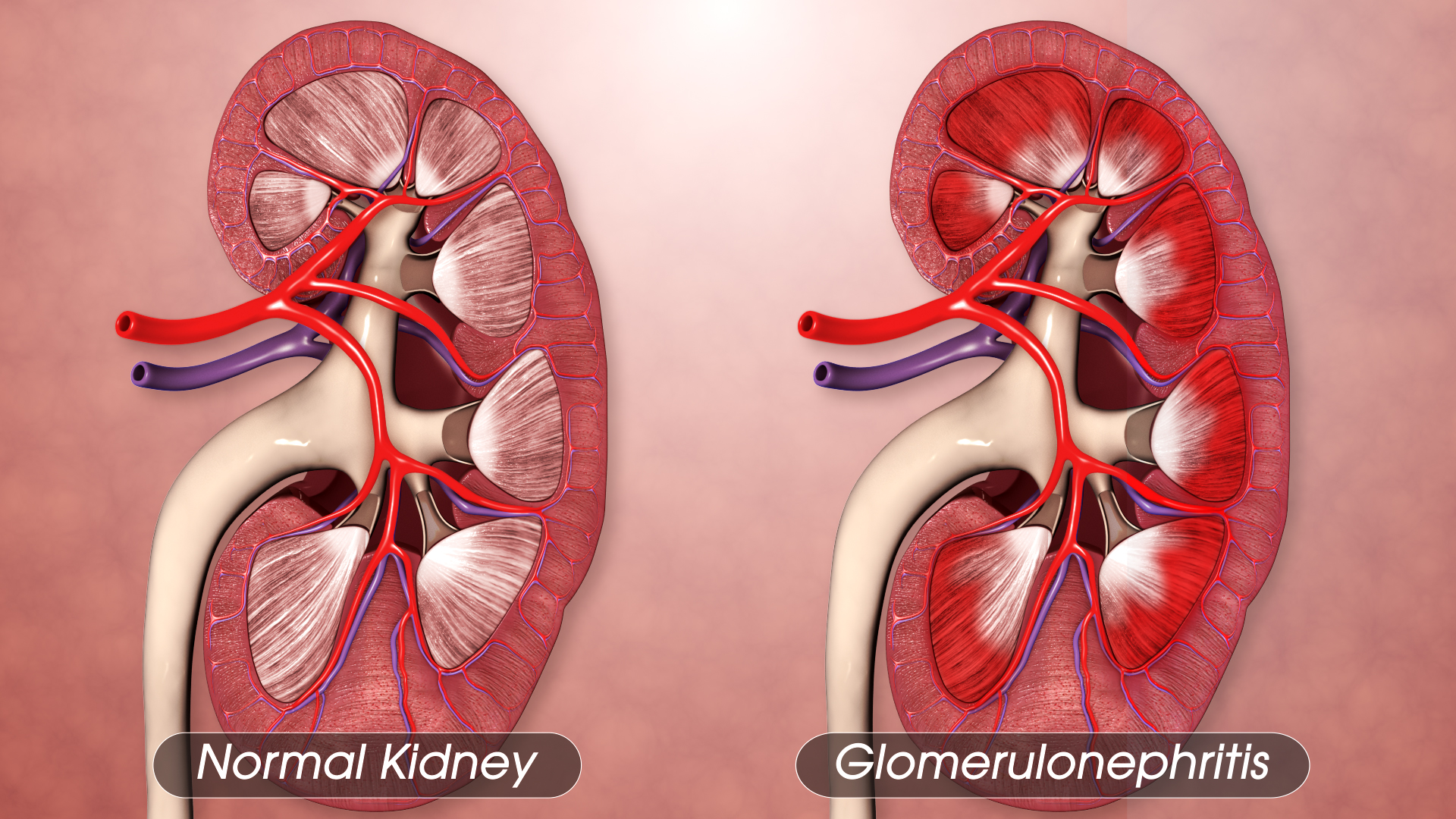19 Dec 2025
Age Specific Related to Psoriasis in Amritsar


Dr. Raka Kaushal
22 May 2025
Call +91 80788 80788 to request an appointment.
Glomerulonephritis refers to an inflammation of the glomeruli, tiny structures in the kidneys responsible for filtering waste and excess substances from the blood. It can be classified into acute and chronic forms, which may arise due to infections, autoimmune diseases, or exposure to drugs and toxins. This condition is significant as it can lead to kidney failure if not identified and managed promptly. At Livasa Hospitals, our nephrology team specializes in diagnosing and treating glomerulonephritis, ensuring that patients receive the highest standard of care in Punjab.
The symptoms of glomerulonephritis can vary based on the underlying cause but frequently include blood in the urine (hematuria), foamy urine due to proteinuria, and swelling in various body parts such as legs and around the eyes. In severe cases, individuals may experience high blood pressure and kidney dysfunction, necessitating a comprehensive approach to diagnosis and treatment.
Glomerulonephritis can develop for various reasons, which can largely be categorized into primary and secondary causes.
Primary glomerulonephritis is a condition that starts directly in the glomeruli and often includes diseases such as minimal change disease, focal segmental glomerulosclerosis, and membranous nephropathy. These disorders generally result from unknown factors and may involve genetic predisposition.
Secondary glomerulonephritis, on the other hand, occurs due to underlying systemic conditions. Some common causes include:
Understanding the specific cause of glomerulonephritis is crucial for developing an effective treatment plan tailored to the patient's unique situation.
The symptoms of glomerulonephritis can differ depending on the severity of the condition and whether it presents as acute or chronic. Common symptoms include:
Some patients might not exhibit noticeable symptoms, especially in cases of chronic glomerulonephritis. Regular check-ups with kidney disease specialists in Punjab can aid in early detection and management of complications associated with this condition.
Correctly diagnosing glomerulonephritis is essential for effective treatment. Medical practitioners at Livasa Hospitals utilize a variety of diagnostic tests, which may include:
These tests are instrumental in determining the type and extent of glomerulonephritis, which informs treatment pathways tailored to individual needs.
Treatment for glomerulonephritis is dependent on the specific underlying cause and the severity of the condition. Here are various treatment options available:
| Treatment Method | Description | Example Medications |
|---|---|---|
| Immunosuppressive Therapy | Used in autoimmune-related glomerulonephritis. | Corticosteroids, Azathioprine |
| Antihypertensive Medications | Helps control high blood pressure and protect kidney function. | ACE inhibitors, ARBs |
| Diuretics | Reduces fluid overload by promoting urine production. | Furosemide, Hydrochlorothiazide |
For advanced cases of glomerulonephritis, where kidney function significantly declines, patients may require renal replacement therapy such as dialysis or even kidney transplantation. At our nephrology hospitals in Punjab, we offer cutting-edge nephrology treatment to ensure comprehensive care.
In conjunction with medical treatment, patients with glomerulonephritis can benefit from lifestyle changes that promote kidney health. These include:
Collaborating closely with healthcare providers to formulate a personalized management plan helps ensure optimal outcomes for those living with glomerulonephritis. At Livasa Mohali, Livasa Amritsar, and other locations, our nephrology specialists are available to offer support, education, and care.
The prognosis for glomerulonephritis depends on various factors, including the underlying cause, the presence of chronic kidney disease, and the success of treatment interventions. In many cases, early diagnosis and appropriate medical management lead to favorable outcomes.
Long-term management may include ongoing monitoring of kidney function and adapting treatment strategies as necessary. Patients are encouraged to maintain regular consultations with nephrology healthcare services in Punjab to track their health status.
For chronic cases, complications such as end-stage kidney disease can occur, necessitating dialysis or kidney transplant. Continuous advancements in nephrology treatment in Punjab enable healthcare professionals to provide timely interventions and supportive measures for patients facing such challenges.
Glomerulonephritis is a complex condition that can arise from various causes and significantly impact kidney health. Together with a multidisciplinary approach to diagnosis, treatment, and lifestyle management, patients can achieve better health outcomes.
It is essential to remain informed and proactive about kidney health, recognizing symptoms and pursuing timely care. At Livasa Hospitals, we are dedicated to providing specialized kidney treatment in Punjab, addressing all aspects of glomerulonephritis care through our network of top nephrologists.
Early diagnosis and treatment can significantly improve outcomes. Book an appointment at Livasa Hospitals or consult our nephrology specialists for more information on managing glomerulonephritis.
+91 80788 80788
Livasa Healthcare Group Corporate Office,Phase-8, Industrial Area, Sector 73, Sahibzada Ajit Singh Nagar, Punjab 160071
livasacare@livasahospitals.in
| Mohali | +91-99888 23456 |
| Amritsar | +91-99887 49494 |
| Hoshiarpur | +91-99883 35353 |
| Nawanshahr | +91-75081 82337 |
| Khanna | +91-98888 05394 |